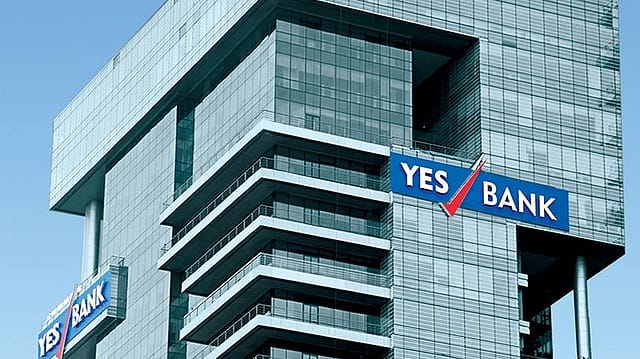YES Bank posts first ever quarterly loss
ADVERTISEMENT

Saddled with bad loans, YES Bank posted a net loss of ₹1,506.6 crore for the quarter ended March 31, its first ever loss in the 55 quarters since India’s fifth largest private lender went public in 2005.
The bank, which ranked 61 on the 2018 list of the Fortune India 500 companies, posted a profit of ₹1,001.9 crore in the previous quarter , and a ₹1,179.4 crore profit in the corresponding quarter a year ago.
On a consolidated basis, the bank’s profit declined 59.6% to ₹1,709.3 crore in FY19, from ₹4,233.2 crore in FY18. Provision for doubtful debts, which jumped over nine times to ₹3,661.7 crore in the March 2019 quarter, from ₹399 crore last year, is one of the key reasons for the bank’s first quarterly loss. Even on a sequential basis, provisioning jumped over six times from ₹550.2 crore in the quarter ended December 2018.
YES Bank disclosed that it has an outstanding of ₹2,528 crore loaned to various companies and special purpose vehicles of the stressed financial conglomerate – Infrastructure Leasing & Financial Services (IL&FS) group. Of the exposure, ₹2,442.1 crore has been classified as non-performing assets (NPAs), which led to a specific provisioning of ₹610.5 crore in the March quarter.
The higher NPA classification saw the bank’s gross NPA swell to ₹7,882.6 crore in the March quarter—a threefold jump from ₹2,626.8 crore a year ago, and 1.5 times higher than ₹5,158.6 crore in the previous quarter. Similarly, net NPAs stood at ₹4,484.9 crore in the March quarter—3.4 times higher than ₹1,312.8 crore in the year-ago period, and 1.6 times above ₹2,876.4 crore in the December 2018 quarter.
In context of percentage of advances, YES Bank’s gross NPAs touched 3.22% in the March quarter, compared to 2.10% in the December 2018 quarter and 1.28% in the year-ago quarter. While the net NPAs were at 1.86% of advances, compared to 1.18% and 0.64% each in previous and year-ago quarters, respectively.
For managing director & CEO Ravneet Gill, who took charge on March 1, the first quarterly result was a dark spot in the financial history of the private bank. However, Gill said he was “excited to be part of this dynamic institution”, and reaffirmed the bank’s “commitment of building India’s finest and most admired financial services company”.
Alongside the results, the board of directors recommended a dividend of ₹2 per share (100% on the face value of ₹2) for the fiscal year ended March 31, 2019. It also approved a fund raise of up to ₹20,000 crore by issue of debt securities. The board also approved equity fund raise of up to $ 1 billion, in one or more tranches, subject to shareholder approval.
Market experts believe that the stock price of YES Bank will face some heavy bashing on Tuesday (the markets are closed on Monday due to voting for the general election in Mumbai). In 2018, the bank’s stock, which saw a 52-week high of ₹404 (on August 20) and low of ₹147 (on November 29), in a time span of just 67 trading days. At a share price of ₹237.4 at the close of trading hours on Friday, the stock has recovered over 61% from the 52-week low in November.